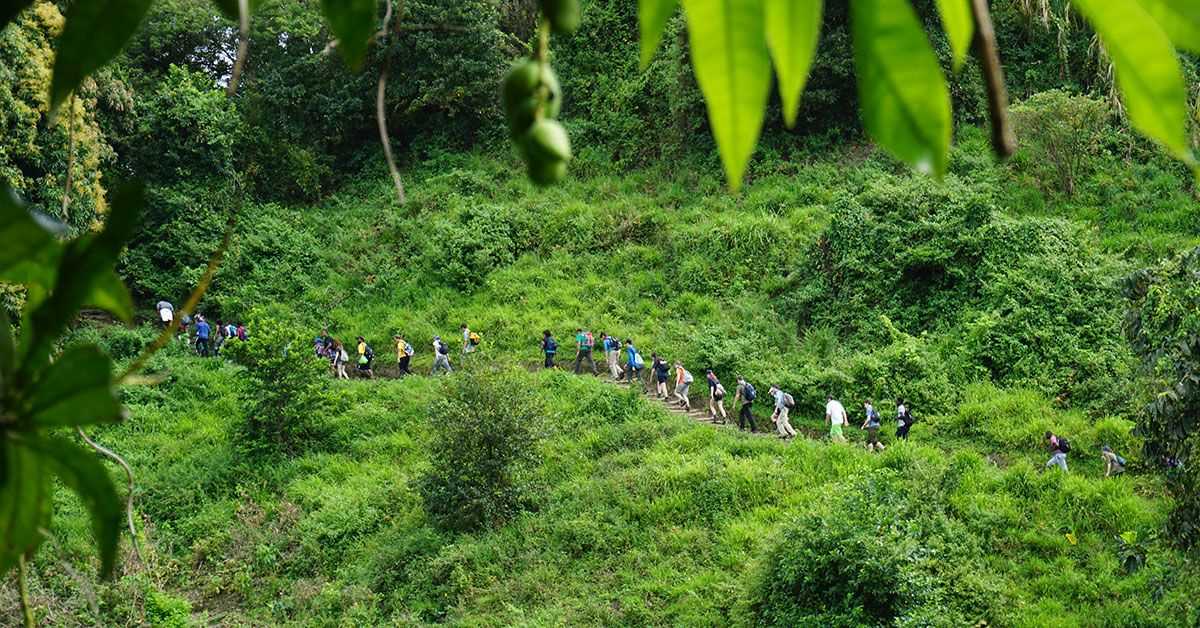What is Ecotourism?
Ecotourism (also called sustainable tourism) can be defined by a variety travel practices, but it all comes down to a general set of ideas. As an Eco-tourist, you decide to travel in a way that shows respect to nature and does not contribute to its degradation.
Additionally, ecotourism is a part of environmental conservation, and understanding what the needs of the people are who are local to the area so that you can help to improve their quality of life. It also involves learning more about the history of other cities and preserving the historical landmarks.
As per The international Ecotourism society,
 “Ecotourism is now defined as “responsible travel to natural areas that conserves the environment, sustains the well-being of the local people, and involves interpretation and education” (TIES, 2015). Education is meant to be inclusive of both staff and guests.”
“Ecotourism is now defined as “responsible travel to natural areas that conserves the environment, sustains the well-being of the local people, and involves interpretation and education” (TIES, 2015). Education is meant to be inclusive of both staff and guests.”
Importance of Ecotourism
When we think of the joys that come with the adventures of traveling, we often envision exciting trips to beautiful places fit for a perfect photograph, unique foods you won’t find at home, and encounters with people who are much different from those we are accustomed to. Tourism allows us to do more than just learn facts about various locations. It allows us to immerse ourselves into the cultures and lifestyles of others and leaves lasting impressions that aren’t likely to be forgotten.
Ecotourism is valuable for people and the Planet
The rewards that come with the newness and the satisfying learning experiences of travel are irreplaceable, and these benefits can be enhanced through ecotourism. As an Eco-tourist, you travel with more than personal satisfaction in mind. You help the planet and you enable people to lead a more fulfilling life.
Local communities, especially those that do not thrive by industrial means, could benefit greatly from tourists who respect their lands while providing additional funding. In unspoilt regions, we are offered a touring experience that reminds us of nature’s enchanting qualities and we are commonly introduced to welcoming residents.
Sustainable tourism is a learning experience for everyone involved
The more that we know about a place, our love and admiration grows and inspires us to protect it. Tour guides and hosts are educated on a deeper level in order to share knowledge with visitors while tourists come to appreciate the beauty of new surroundings. Adding to the visual appeal is the new perspective that comes with learning the historical and environmental significance of unfamiliar lands and buildings.
As we explore unknown places with a spirit of curiosity and kindness, we begin important discussions with locals and other visitors. Through their stories, we have an inside view of what the needs and desires of the people are.
Unfortunately, tourists are viewed by some as rude visitors who create inconveniences for residents. Locals are often annoyed by the increased traffic, unreasonable demands and the inability of tourists to understand and respect the cultural expectations and dress codes.
When you meet people as you travel sustainably, mutual understanding allows all parties involved to learn about one another. You are able to tell others where you are from and to show them that you would like to tour the area without disturbing their way of life or disrespecting their values. By showing strangers that you care about their feelings and concerns, they view you as a representative of your home and as an ally. This creates a sense of unity and cultural sensitivity
Ecotourism Promotes Economic Stability
We live in a very diverse world full of eclectic people who live off the land and depend on what nature provides. Commercial tourist attractions may be placed in a specific area, but that doesn’t mean it gives back to these communities. Instead, large corporations tend to change the way of living for some natives depending on what will be most profitable. When this happens, locals often relocate and are devastated on both a physical and emotional level due to the stresses that come with moving.
Many of these indigenous cultures have been deluded, or destroyed altogether, to set up for tourism, but it doesn’t have to be that way. Traveling to local attractions offers exciting experiences and the funding you provide to these places is shared amongst the community, contributing to more jobs and a boost in the local economy.
Animals Suffer When We Don’t Travel Sustainably
Small companies are working to save species from extinctions and monetary support helps them in this mission. At many major attractions, animals are unfairly caged or forced to participate in performances that cause them stress and discomfort. Instead of paying to view animals in captivity, go sightseeing to see them at play in their natural habitats. There are also hiking trails waiting to be explored that offer colorful views of nature and close encounters with diverse species.
 “Ecotourism is now defined as “responsible travel to natural areas that conserves the environment, sustains the well-being of the local people, and involves interpretation and education” (TIES, 2015). Education is meant to be inclusive of both staff and guests.”
“Ecotourism is now defined as “responsible travel to natural areas that conserves the environment, sustains the well-being of the local people, and involves interpretation and education” (TIES, 2015). Education is meant to be inclusive of both staff and guests.”
Comments
Post a Comment